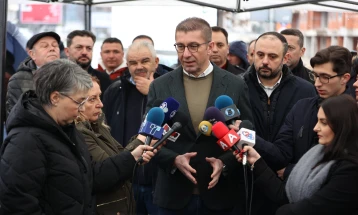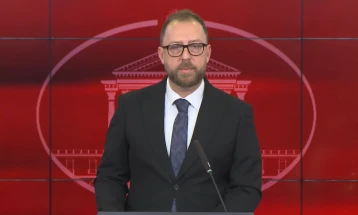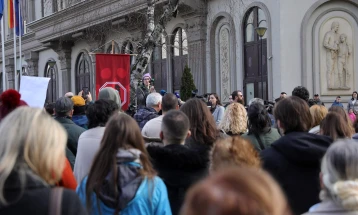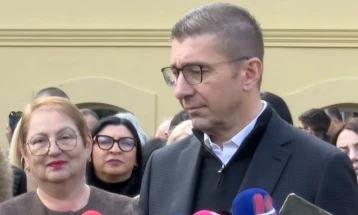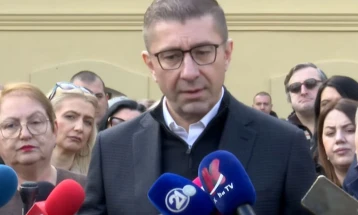Officials call on businesses and citizens to save electricity amid energy crisis
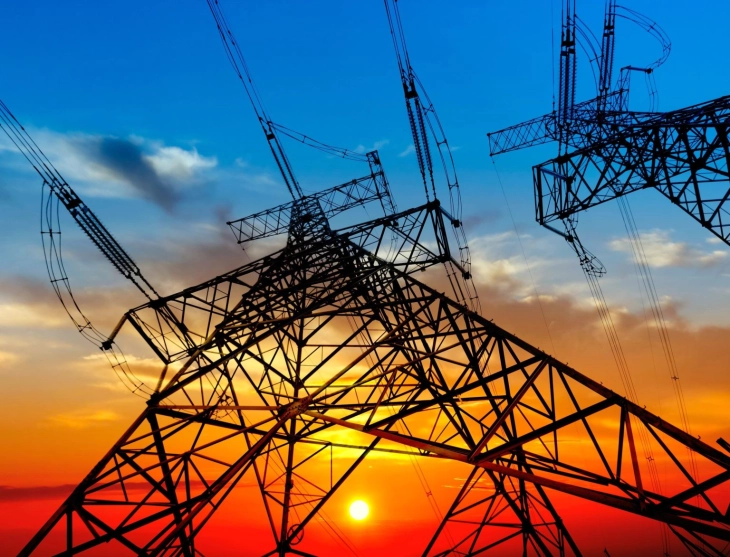
Skopje, 29 August 2022 (MIA) – Ahead of the expected difficult winter, supporting agriculture and management of the energy crisis remain the Government’s top priorities, said Prime Minister Dimitar Kovachevski. At the same time, VMRO-DPMNE leader, Hristijan Mickoski called on the authorities to produce electricity, which would aid businesses.
PM Kovachevski announced on Sunday that the Economic Council will review the business sector’s demands, which are meant to soften the blow of high electricity prices, and the Government will intervene once it has the necessary calculations.
However, according to the PM, an additional reduction of VAT would not greatly affect electricity prices, because on the free-market electricity is being sold for over 1,000 euros.
“When it comes to a VAT reduction, it already has been reduced for electricity. If it is necessary, it will be reduced again, but that wouldn’t significantly affect the price of electricity, since it is selling for over 1000 euro on the free market. Regarding the trade margins of electricity, first an analysis needs to be done by the Regulatory Commission, so we can see how large the trade margins are and if there are any,” said Kovachevski.
Kovachevski pointed out that the key thing to do in the upcoming period is to save as much electricity as possible.
“We find ourselves in a period when electricity prices are at their highest and surpass any economic logic, this is the case on the entire European continent, all the Government departments and publicly owned companies will have to carry out their tasks so that we have uninterrupted supply of electricity,” added Kovachevski.
On the other hand, VMRO-DPMNE leader Mickoski said that Macedonian businessmen pay higher electricity prices than their regional peers and called on the authorities to produce electricity which “would aid businesses”.
“I call on the authorities… to allow business and the economy to survive during these difficult times, because they are heroes who, every month, struggle to ensure their employees' survival. The authorities should get to work, and produce electricity which would aid the business sector and thereby make Macedonian business competitive,” said Mickoski.
However, Minister of Finance, Fatmir Besimi, assessed that seven months after the beginning of the war in Ukraine, the economic outlook remains uncertain, with downside risks because of the growing inflation, the possibility of Russia halting gas delivery to Europe, the growing price of electricity and the tightening financing conditions.
In an opinion piece, Besimi pointed out that the electricity prices for European households and businesses will be higher than previously expected.
“This will affect the consumers’ trust, which will continue to fall thus making them less prepared to spend their savings, this will affect consumption in the second half of the year. The energy prices will also affect investments. Increased costs and weaker consumption prospects will influence companies to cut back on non-essential projects,” wrote Besimi.
He reminded that the price of natural gas rose to over 3.300 USD per 1000 cubic meters, which is an increase of 700 percent compared to the middle of 2021.
“The price of electricity is setting records as well. On the German market towards the end of August, electricity prices reached over 700 euro per MWh for a one-year supply, while on the French market it was over 800 euro per MWh. These peaks affected all regional markets and the price reached 600 euro per MWh. While in 2021, the price of 75-100 euro per MWh on the European markets was considered to be high, and on the regional market the prices never exceeded 50-75 euro,” wrote Besimi.
The finance minister also pointed out that energy experts do not expect the situation will change much until the end of the winter, except in the event of an end to the war in Ukraine or a decision by Germany to import Russian gas through Nord Stream 1 and 2.
“On the other hand, if Germany, which predominantly influences the price of electricity on the European markets, sticks to the intention to stop using Russian gas, the high energy prices will remain for a few years,” Besimi underlined.
In such conditions, he added, the Government is undertaking and will undertake measures to soften the blow of rising electricity prices, through subsidizing ESM’s production and lowering the VAT of electricity from 18 to 5 percent, which on a yearly level would result in around 50 million euro less in VAT Budget revenue.
“The electricity price at the regulated market in the country is five times lower compared to the market price – this is how we support households and some businesses that are small consumers. The difference between cost price and selling price of electricity that ESM supplies to the regulated market for households, including distribution network losses, exceeds 200 million euro per year,” added Besimi, calling for urgent saving measures from all public institutions, private businesses, as well as every household and each citizen. ad/ba/

